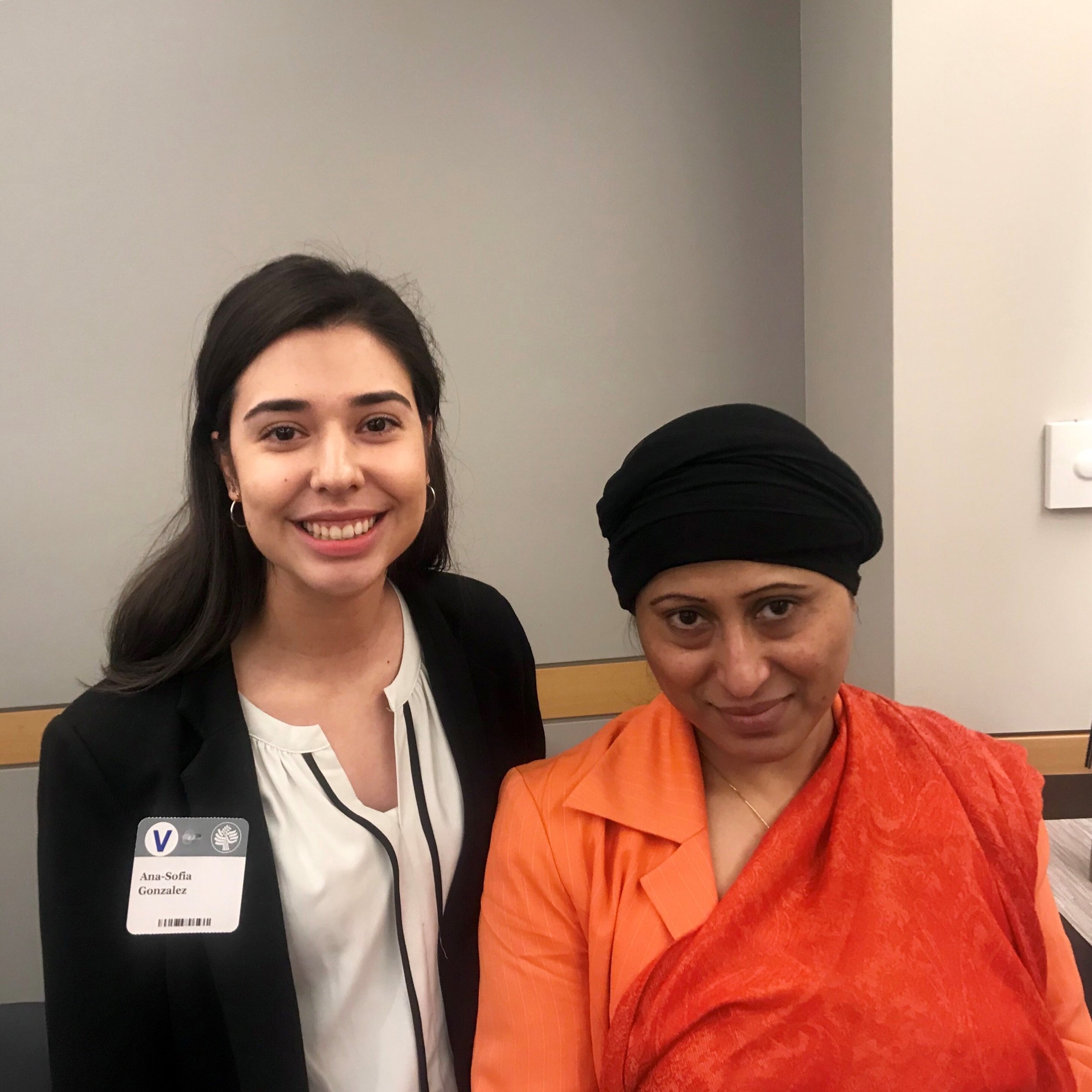Myanmar Women Stand with Myanmar Women

The military campaign by the government of Myanmar against the Rohingya people has been brutal—and there is compelling evidence of ethnic cleansing, crimes against humanity, and even genocide. The campaign of violence has disproportionately affected women and girls. Yet even in the face of traumatic gender-based violence (GBV) and displacement, the women of Myanmar continue to stand in solidarity with one another, fight for justice, and persist through trying times.
“Give the Rohingya women an opportunity and a bit of security and they will amaze you.”

March is Women’s History month, and Refugees International had the honor of meeting two women, both born in Myanmar, who received the Secretary of State’s 2019 International Women of Courage (IWOC) award. This award is presented annually by the U.S. Department of State to honor women around the world who have demonstrated immense bravery, leadership, and willingness to sacrifice their safety in order to promote women’s rights in their region. Razia Sultana and Naw K’nyaw Paw have both shown extraordinary resilience in advocating for human rights and peace in Myanmar.
Myanmar-born and Bangladesh-raised, Razia Sultana is a Rohingya lawyer who has dedicated her career to protecting human rights not only in her community but throughout Myanmar. She has been a strong advocate for the Rohingya and has conducted research and directed educational programs focused on trauma, mass rape, and the trafficking of Rohingya women and girls.
Ms. Sultana has personally interviewed hundreds of Rohingya refugees living in Bangladesh since 2016 in addition to publishing two original reports, “Witness to Horror” and “Rape by Command,” which document the systemic sexual violence the Myanmar security forces inflicted on the Rohingya people. As if she were not doing enough, Ms. Sultana is also the director of the Free Rohingya Coalition (FRC) and the women’s division of the Arakan Rohingya National Organization (ARNO). Needless to say, Ms. Sultana’s work to stand up and speak out for Rohingya women is the very definition of courage.

Naw K’nyaw Paw, another 2019 IWOC recipient, has demonstrated unwavering commitment to her fellow sisters of Myanmar. Having attended high school in Mae Ra Moe, a refugee camp on the Thai-Myanmar border in 1998, Naw K’nyaw Paw’s life has been dedicated to supporting ethnic communities who have been displaced by civil war. Naw K’nyaw Paw is secretary general of the Karen Women’s Organization (KWO), an ethnic women’s organization with more than 60,000 members supporting the rights of indigenous people in Myanmar and promoting gender equality. She has risked her own safety and security in order to document GBV in Myanmar since 2004. Striving to achieve peace and a united civilian government, the KWO continues to work daily to improve the lives of women and children in the communities of Karen State and beyond.
Refugees International plans to return to Bangladesh in the coming weeks to follow up on our ongoing research and advocacy efforts on the needs of the Rohingya population. The overall conditions in which the women of Myanmar and Bangladesh are living today are still substandard and dangerous. Even in displacement, Rohingya refugee women still suffer from targeted GBV, poor health care services, lack of privacy, and language barriers within the overcrowded refugee camps.
“We must not be silent. We have to speak out for our people.”
Despite these challenges, individuals like Razia Sultana, Naw K’nyaw Paw, and others like them are leading efforts to improve conditions for women and children in Myanmar and the region. Refugees International celebrates the will of women like Ms. Sultana and Naw K’nyaw Paw to call out violence against women and girls, unite communities, and push for peace both in displacement and in their original home of Myanmar.